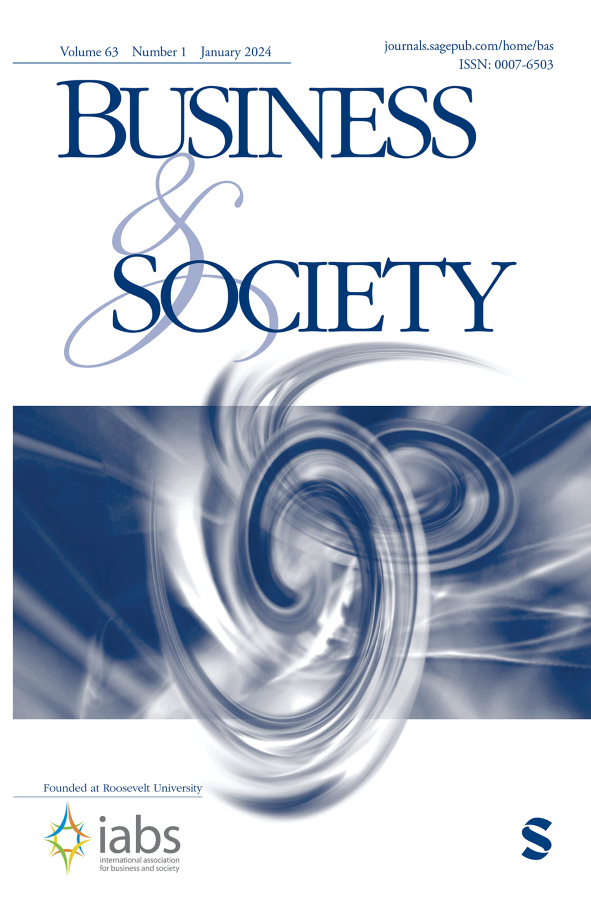坏人先完蛋?从道德情感角度看施虐上司的工作绩效结果
IF 6
3区 管理学
Q1 BUSINESS
引用次数: 0
摘要
施虐上司是否从自己的有害行为中获益,或者他们是否与受害者一样受到同样的影响?本文对越来越多的研究进行了延伸,这些研究旨在了解不良行为者是如何处理自己的负面行为的,他们何时受到其不良行为的最大影响,以及他们的工作表现如何因此受到影响。我们将这项研究建立在道德情感视角的基础上,认为实施虐待性监督会引起突出的道德反应(即羞愧或内疚),进而影响监督者自身的工作行为。具体来说,我们认为内疚感会促使施虐上司通过提高工作绩效来弥补自己的负面行为,而羞愧感会使上司退缩并表现出较低的工作绩效。研究 1 的多重调解结果显示,施虐上司主要会感到羞愧,进而降低工作绩效。在研究 2 中,我们考虑了上司核心自我评价(CSE)的调节作用,从而扩展了这些研究结果。我们发现,当管理者拥有脆弱的自我意识(即低 CSE)时,颁布的虐待行为与主管绩效之间的负面关系(通过羞耻感)会加剧。总之,本文进一步论证了滥用权力的主管不会从自己的负面行为中获利,他们也会遭受绩效挫折。本文章由计算机程序翻译,如有差异,请以英文原文为准。
Bad Guys Finish First? A Moral Emotional Perspective of Job Performance Outcomes for Abusive Supervisors
Do abusive supervisors benefit from their own harmful behaviors, or do they experience the same repercussions as their victims do? This article extends a growing stream of research that aims to understand how bad actors process their own negative actions, when they are most impacted by their adverse behaviors, and how their job performance is influenced as a result. We ground this research in a moral emotions perspective to suggest that enacted abusive supervision elicits prominent moral responses (i.e., shame or guilt), which subsequently influence the supervisor’s own work conduct. Specifically, we suggest that feelings of guilt will prompt an abusive boss to compensate for their negative behaviors by increasing performance efforts, whereas supervisors with feelings of shame will withdraw and exhibit lower work performance. Multiple mediation results from Study 1 revealed that abusive supervisors predominantly experience shame and, in turn, reduced performance. In Study 2, we expand on these findings by considering the moderating role of supervisor core self-evaluations (CSE). We find that the negative relationship between enacted abuse and supervisor performance (through shame) is exacerbated when managers possess a fragile sense of self (i.e., low CSE). Overall, the current article adds to the argument that abusive supervisors do not profit from their own negative behaviors and that they, too, suffer performance setbacks.
求助全文
通过发布文献求助,成功后即可免费获取论文全文。
去求助
来源期刊

Business & Society
BUSINESS-
CiteScore
14.80
自引率
11.40%
发文量
56
期刊介绍:
Business & Society publishes original research, book reviews, and dissertation abstracts relating to business ethics, business-government relations, corporate governance, corporate social performance, and environmental-management issues. Manuscripts relating to the field of business and society in general are also published. Submissions of theoretical/ conceptual work as well as empirical studies are encouraged. Business & Society is the first peer-reviewed scholarly publication devoted exclusively to the field of business and society, and it is the official journal of the International Association for Business and Society (I.A.B.S.), the only independent professional association dedicated to business and society teaching and research.
 求助内容:
求助内容: 应助结果提醒方式:
应助结果提醒方式:


